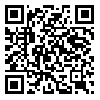Volume 36, Issue 142 (July 2023)
IJN 2023, 36(142): 128-141 |
Back to browse issues page
Download citation:
BibTeX | RIS | EndNote | Medlars | ProCite | Reference Manager | RefWorks
Send citation to:



BibTeX | RIS | EndNote | Medlars | ProCite | Reference Manager | RefWorks
Send citation to:
Yalameh Z, Heidari H, Deris F, Salehi Tali S. Effect of a Mobile-based Educational Program on Anxiety and Self-efficacy of Iranian Mothers With Children Admitted to the Pediatric Intensive Care Units. IJN 2023; 36 (142) :128-141
URL: http://ijn.iums.ac.ir/article-1-3655-en.html
URL: http://ijn.iums.ac.ir/article-1-3655-en.html
1- Department of Pediatric Nursing, School of Nursing & Midwifery, Shahrekord University of Medical Sciences, Shahrekord, Iran.
2- Department of Pediatric Nursing, Modeling in Health Research Center, School of Nursing & Midwifery, Shahrekord University of Medical Sciences, Shahrekord, Iran. ,haydehheidari@gmail.com
3- Department of Epidemiology and Biostatistics, School of Health, Shahrekord University of Medical Sciences, Shahrekord, Iran.
4- Department of Nursing, School of Nursing & Midwifery, Shahre-Kored University of Medical Sciences, Shahre-kored, Iran.
2- Department of Pediatric Nursing, Modeling in Health Research Center, School of Nursing & Midwifery, Shahrekord University of Medical Sciences, Shahrekord, Iran. ,
3- Department of Epidemiology and Biostatistics, School of Health, Shahrekord University of Medical Sciences, Shahrekord, Iran.
4- Department of Nursing, School of Nursing & Midwifery, Shahre-Kored University of Medical Sciences, Shahre-kored, Iran.
Abstract: (1989 Views)
Background & Aims Admitting a child to a pediatric intensive care unit (PICU) brings various physical, psychological and social consequences for parents. Supporting parental self-efficacy is a step to ensure successful implementation of pediatric care. Therefore, it is necessary to provide appropriate interventions to reduce anxiety and stress and improve self-efficacy of parents. Although mobile-based education has been used for patients in many studies, its use for family caregivers of children admitted to PICU is limited. This study aims to assess the effect of a mobile-based educational program on the anxiety and self-efficacy of mothers with children admitted to PICUs in Iran.
Materials & Methods In this quasi-experimental study, participants were 60 mothers of children admitted to the PICUs of hospitals in Shahrekord, Iran from April to August 2022. They were selected using a convenience sampling method and were divided into two intervention and control groups. The intervention group received a mobile-based educational program for four days, one session per day, each for 60 minutes. For the control group, routine education was given by the ward nurses. Data were collected by Spielberger’s state-trait anxiety inventory and Schwarzer & Jerusalem’s general self-efficacy scale. Data were analyzed using descriptive and inferential statistics.
Results The mean self-efficacy score in the intervention group increased significantly compared to the pre-intervention score (from 19.60±4.01 to 21.87±5.13; P<0.001), but no significant difference was observed in the control group (from 18.53±4.23 to 19.30±5.40; P=0.393). In the intervention group, the mean anxiety score decreased significantly compared to the pre-intervention score (from 47.33±5.52 to 43.63±5.27; P=0.001) but no significant difference was observed in the control group (from 48.30±6.88 to 46.43±9.02; P=0.131). There was no significant difference between the two groups in anxiety and self-efficacy scores before and after the intervention (P>0.05).
Conclusion Nurses can reduce anxiety and increase the self-efficacy of mothers of children admitted to PICUs by using other measures along with virtual education, which requires more research in this field.
Materials & Methods In this quasi-experimental study, participants were 60 mothers of children admitted to the PICUs of hospitals in Shahrekord, Iran from April to August 2022. They were selected using a convenience sampling method and were divided into two intervention and control groups. The intervention group received a mobile-based educational program for four days, one session per day, each for 60 minutes. For the control group, routine education was given by the ward nurses. Data were collected by Spielberger’s state-trait anxiety inventory and Schwarzer & Jerusalem’s general self-efficacy scale. Data were analyzed using descriptive and inferential statistics.
Results The mean self-efficacy score in the intervention group increased significantly compared to the pre-intervention score (from 19.60±4.01 to 21.87±5.13; P<0.001), but no significant difference was observed in the control group (from 18.53±4.23 to 19.30±5.40; P=0.393). In the intervention group, the mean anxiety score decreased significantly compared to the pre-intervention score (from 47.33±5.52 to 43.63±5.27; P=0.001) but no significant difference was observed in the control group (from 48.30±6.88 to 46.43±9.02; P=0.131). There was no significant difference between the two groups in anxiety and self-efficacy scores before and after the intervention (P>0.05).
Conclusion Nurses can reduce anxiety and increase the self-efficacy of mothers of children admitted to PICUs by using other measures along with virtual education, which requires more research in this field.
Type of Study: Research |
Subject:
nursing
Received: 2023/01/17 | Accepted: 2023/06/22 | Published: 2023/07/1
Received: 2023/01/17 | Accepted: 2023/06/22 | Published: 2023/07/1
Send email to the article author
| Rights and permissions | |
 |
This work is licensed under a Creative Commons Attribution-NonCommercial 4.0 International License. |







